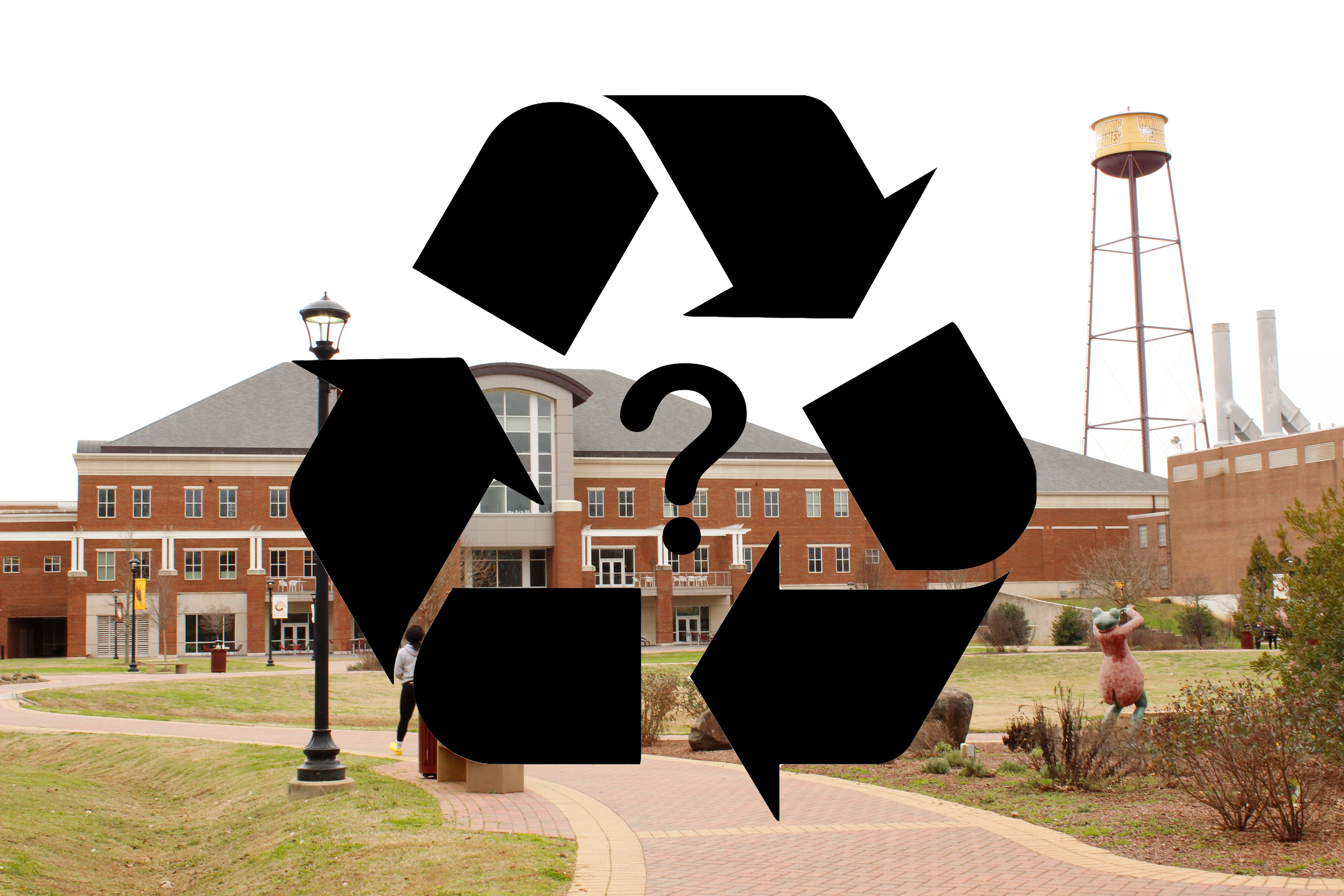“Reduce, Reuse, Recycle” — a saying many children have heard since they were in primary or elementary school. However, many people only focus on the recycling portion of this saying and it shows on the American carbon footprint.
“Reduce, reuse, recycle. Recycling is good but often times people forget about reduce [and] reuse,” Jennifer Schafer, an assistant biology professor, said. “I think more focus should also be on reducing and reusing instead of just recycling.”
Individual changes can help incorporate more emphasis on the reduce and reuse aspects of the saying. Even seemingly little things can help the environment in big ways.
“[Bring] your own canvas bags when you are going to the grocery store so you are reducing the use of plastic bags. You can get your own metal straw and use that in restaurants [and] get a water bottle so you are not using plastic water bottles,” Schafer said. “I think awareness is useful and has positive impacts [and it allows] people [to give] a second thought before they use plastic bags and make decisions.”
As of 2019, America produces 16% of a carbon footprint on the world and is the third biggest producer of pollution, according to the Union of Concerned Scientists. While other countries after that only produce 7% or less of a carbon footprint.
“Europe is ahead of the U.S. Their bus systems are much more developed. Their train systems are much more developed,” Marsha Bollinger, Chair of the Department of Interdisciplinary Studies and professor of geology, said. “Some European countries are doing a fabulous job of reducing their carbon emissions and making their impact on climate change much less and much more quickly than the U.S. will consider.”
However, Rock Hill and Winthrop have made conscious decisions on reducing their carbon footprint on the environment.
“The new bus system is very exciting [and they are electric] which is better for air quality. There’s one initiative to make Rock Hill more bike friendly,” Bollinger said. “We have a much more robust recycling program. We have installed more energy efficient lighting…water faucets and toilets.”
Individual changes can also create an impact on laws and subsequently corporate policies regarding their carbon footprint and it is encouraged to help inspire and create this change.
“Personal decisions can be impactful. Lots of individuals making similar decisions will facilitate change in terms of laws and regulations and can influence corporate policies if there’s enough people that are thinking sustainability minded,” Schafer said. “They have the power to make changes at a level that will have a large impact.”
Bollinger advises students to bring change to their own community by creating their own initiatives to lessen pollution in America.
“I think there are things students really want to happen. They need to think it through to get a plan together to use the system,” Bollinger said. “[They should] go to the council of student leaders and insert that into the system.”
Photo: Tate Walden/ The Johnsonian




